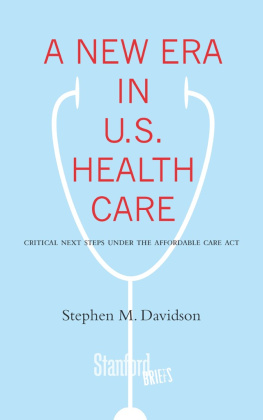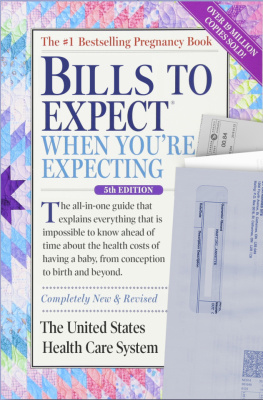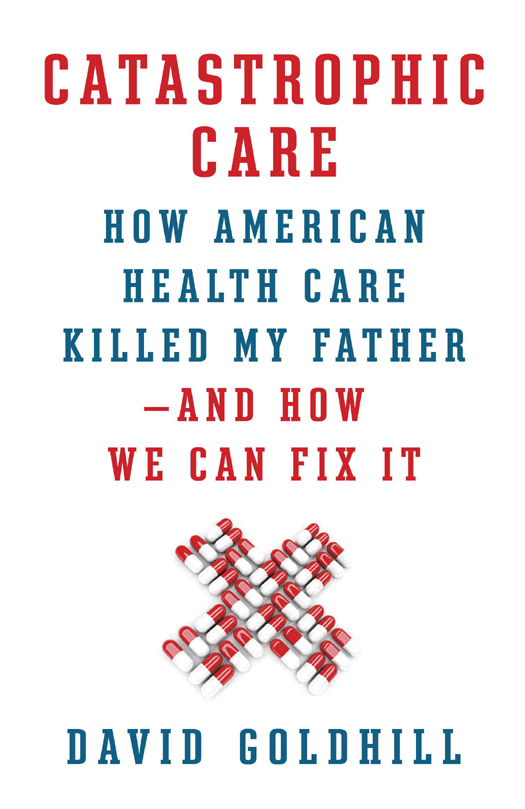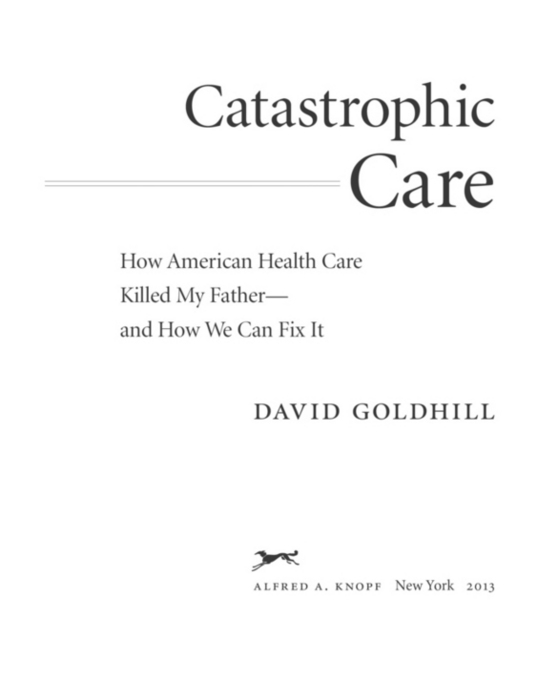David Goldhill - Catastrophic Care: How American Health Care Killed My Father--and How We Can Fix It
Here you can read online David Goldhill - Catastrophic Care: How American Health Care Killed My Father--and How We Can Fix It full text of the book (entire story) in english for free. Download pdf and epub, get meaning, cover and reviews about this ebook. year: 2013, publisher: Knopf, genre: Politics. Description of the work, (preface) as well as reviews are available. Best literature library LitArk.com created for fans of good reading and offers a wide selection of genres:
Romance novel
Science fiction
Adventure
Detective
Science
History
Home and family
Prose
Art
Politics
Computer
Non-fiction
Religion
Business
Children
Humor
Choose a favorite category and find really read worthwhile books. Enjoy immersion in the world of imagination, feel the emotions of the characters or learn something new for yourself, make an fascinating discovery.

- Book:Catastrophic Care: How American Health Care Killed My Father--and How We Can Fix It
- Author:
- Publisher:Knopf
- Genre:
- Year:2013
- Rating:4 / 5
- Favourites:Add to favourites
- Your mark:
Catastrophic Care: How American Health Care Killed My Father--and How We Can Fix It: summary, description and annotation
We offer to read an annotation, description, summary or preface (depends on what the author of the book "Catastrophic Care: How American Health Care Killed My Father--and How We Can Fix It" wrote himself). If you haven't found the necessary information about the book — write in the comments, we will try to find it.
A visionary investigation that will change the way we think about health care: how and why it is failing, why expanding coverage will actually make things worse, and how our health care can be transformed into a transparent, affordable, successful system.
In 2007, David Goldhills father died from infections acquired in a hospital, one of more than two hundred thousand avoidable deaths per year caused by medical error. The bill was enormousand Medicare paid it. These circumstances left Goldhill angry and determined to understand how world-class technology and personnel could coexist with such carelessnessand how a business that failed so miserably could be paid in full. Catastrophic Care is the eye-opening result.
Blending personal anecdotes and extensive research, Goldhill presents us with cogent, biting analysis that challenges the basic preconceptions that have shaped our thinking for decades. Contrasting the Island of health care with the Mainland of our economy, he demonstrates that high costs, excess medicine, terrible service, and medical error are the inevitable consequences of our insurance-based system. He explains why policy efforts to fix these problems have invariably produced perverse results, and how the new Affordable Care Act is more likely to deepen than to solve these issues.
Goldhill steps outside the incremental and wonkish debates to question the conventional wisdom blinding us to more fundamental issues. He proposes a comprehensive new way, where the customer (the patient) is firsta system focused on health and maintaining it, a system strong and vibrant enough for our future.
If you think health care is interesting only to institutes and politicians, think again: Catastrophic Care is surprising, engaging, and brimming with insights born of questions nobody has thought to ask. Above all it is a book of new ideas that can transform the way we understand a subject we often take for granted.
David Goldhill: author's other books
Who wrote Catastrophic Care: How American Health Care Killed My Father--and How We Can Fix It? Find out the surname, the name of the author of the book and a list of all author's works by series.




